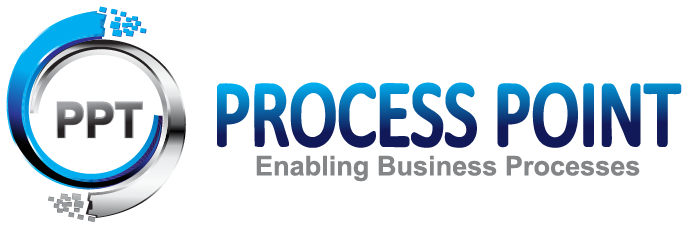Flow Manufacturing
Flow Manufacturing is a manufacturing approach employing the following practices:
- Building to customer demand rather than building to a forecast
Reduces work in process inventory, rework, and scrap and increases product quality as quality and assembly problems are immediately addressed.
- Linear manufacturing rather than batch production
Reduces work in process inventory, rework, and scrap and increases product quality as quality and assembly problems are immediately addressed.
- Mixed model production rather than process layout
Enables a mix of products to be produced on one production line in the same day, which allows the manufacturer to respond to the demand generated by customer orders.
- In-process quality rather than inspecting quality into the product after assembly
Builds quality into the product during the production process resulting in less rework, less scrap, lower cost, and higher customer satisfaction.
- JIT Replenishment of component materials rather than receipts of MRP forecasted demands.
Reduces the amount of component inventory and reduces costs.
- Uses rate-based production rather than work orders
Simplifies shop floor activities and reduces cost.
- Labor flexibility rather than labor specialization
Increases productivity and reduces costs.
- Backflush material and costs upon completion rather than at each operation
Simplifies shop floor activities and reduces costs.
Oracle Flow Manufacturing includes a comprehensive set of features that support the entire flow process from line design and balancing to production execution. It enables implementation of the demand pull system using kanbans for both raw material and in-process assemblies. The planning process is streamlined using Flow schedules to sequence and schedule mixed model production.
The features provided by Oracle Flow Manufacturing are classified into the following categories:
- Demand Management
- Line Design and Balancing
- Line Scheduling and Sequencing
- Production Execution
- Kanban Planning and Execution
Demand Management
Demand management is a factor during both the initial design of flow production lines and the daily execution of the rate-based schedules. During the design phase, the objectives of demand management are to group similar products into families, which allows for planning at an aggregate level and to develop a peak daily volume for all products that will be used for line balancing and kanban planning. During production execution, the objectives are to increase responsiveness to customer demand and to maximize resource use.
Oracle Flow Manufacturing uses the demand management tools provided in Oracle MPS/MRP, Supply Chain Planning and Advanced Planning and Scheduling to plan production volumes.
Line Design and Balancing
Line design and balancing is the foundation of a flow production line. The objective is to balance lines for mixed model production at the expected peak demand that take the least possible time to execute. This is accomplished through flat product structures and simple processes which can be communicated visually to meet customer demand daily. Line design includes grouping products into product families, defining the processes and events required to produce each product, and re-grouping events into line operations to approximate takt time.
Effective flow line design and balanced production smooths production and eliminates bottlenecks. Flow lines are designed to reduce production time and resource costs by identifying value added events and eliminating non-value events. Simplified processes are designed to reduce overhead costs by optimizing floor space utilization. This simplified design also helps increase communication on the production floor through visual management tools. Quality is improved by implementing quality into the process, instead of inspecting at the end.
Line Scheduling and Sequencing
In flow manufacturing, line scheduling is equal to line design and balancing in terms of importance. A line well designed to meet average daily demand that is scheduled improperly can cause excessive changeover, large peaks in demand to kanbans, or unbalanced demand on resources. Each of these will undermine the line's ability to perform to takt. Oracle Flow Manufacturing allows for the creation and use of simple scheduling rules to schedule either sales or planned orders for the flow line. The objective of line scheduling is to sequence production to maximize resource utilization and minimize delays.
Line scheduling allows for:
- Creation of a scheduling rule based on predefined sequencing criteria and scheduling algorithms
- Viewing of all unscheduled orders for your line and choose which orders you want to schedule
- Scheduling the line and viewing the final flow schedule.
Scheduling rules determine the logic used to create flow schedules from orders. They are a combination of sequencing criteria and scheduling algorithms that can help you pull demand forward or backward in time, in order to meet takt for each day.
Production Execution
As throughput time and inventory levels are driven down during implementation of Oracle Flow Manufacturing, the need for and value of detailed production information becomes less critical. This creates the opportunity to eliminate or streamline production execution transactions. One of the tools provided by Oracle Flow Manufacturing to help in this process is the Work Order-less Completion transaction.
Kanban Planning and Execution
A key objective of flow manufacturing and JIT production is to minimize inventory and increase inventory turns. Raw material is pulled into production as needed to meet demand and the pulled material is replenished using a kanban signal. The minimum amount of material possible, based on replenishment time is held at the line in kanban bins. As each bin is emptied, a signal is issued to replenish the bin and the next bin is used to pull the material.
There are many kanban systems in use today but the most commonly used are the two-bin (two card) system and the multibin (multicard) system. Oracle Flow Manufacturing supports both these systems for planning and execution during production.
